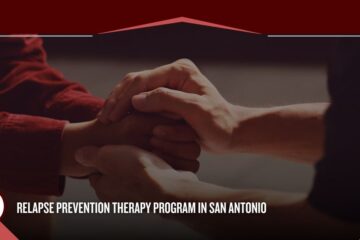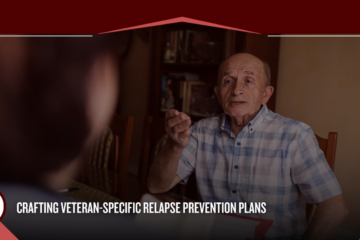Recovering from addiction is a journey full of challenges that requires resilience, determination, and unwavering commitment. Addiction can cast a shadow over various aspects of life, affecting relationships, career aspirations, and overall well-being. However, with guidance and commitment, you can reclaim your life after an addiction. Alamo Behavioral Health will explore empowering strategies and practical steps that can help you rebuild your life, foster healing, and create a future defined by sobriety, purpose, and well-being. From delving into the profound impact of addiction on self-image to recognizing the utmost importance of reclaiming your life, we will provide actionable tips tailored to your unique recovery journey. We will also explore the intricate concept of reverse addiction and its profound influence on the healing process. Let’s see what we need to do to maintain sobriety after rehabilitation and regain our sense of purpose.
The Importance of Reclaiming Your Life
Reclaiming your life from the grips of addiction is a process that holds immense significance. Addiction not only affects your self-image but also impacts your relationships, goals, and overall well-being. Rebuilding a positive self-image and investing in a brighter future are crucial steps toward reclaiming control and finding purpose.
Nurturing a Positive Self-Image
The impact of addiction on self-image can be profound and far-reaching. As addiction takes hold, people often experience a gradual erosion of their self-esteem, self-worth, and self-perception. The constant struggle with substance abuse or addictive behaviors can lead to feelings of shame, guilt, and a distorted self-image. People struggling with addiction may perceive themselves as weak, flawed, or unworthy, perpetuating a cycle of self-destructive thoughts and behaviors. Relationships may suffer, and important life goals and aspirations may be overshadowed by the grip of addiction. Over time, self-confidence can be severely undermined, leaving individuals feeling trapped and disconnected from their authentic selves.

Many individuals with addiction also experience co-occurring mental health disorders, which can contribute to the development of addiction.For instance, many veterans experienced traumatic events that left a lasting impact on their mental health. They struggle with intrusive memories, flashbacks, nightmares, and emotional distress related to a traumatic event. It is crucial to emphasize the significance of seeking professional help for veterans experiencing PTSD and addiction. Mental health disorders such as PTSD, anxiety, or depression can furthermore affect one’s self-image. Rebuilding a positive self-image is vital for reclaiming one’s life and cultivating lasting well-being. Therefore, recognizing and addressing negative self-perceptions is essential to the recovery process.
Investing in a Brighter Future
Finding your purpose after conquering addiction is important for several reasons. It restores personal autonomy, allowing you to regain control and make choices aligned with your values. Rebuilding relationships based on trust and honesty becomes possible. It enhances physical and mental health by adopting healthier habits and addressing underlying issues. Reclaiming your life opens doors for personal growth, pursuing passions, and finding a sense of purpose. Additionally, your journey can inspire others, offering hope and support. Ultimately, it is an investment in your well-being, relationships, and future possibilities.
How to Reclaim Your Life After an Addiction: Actionable Tips
Taking the path to regaining control of your life following a challenging struggle requires immense bravery and leads to profound personal growth. To support you in this endeavor, we have compiled a comprehensive list of actionable tips:
- Repairing Relationships,
- Establishing a Healthy Routine,
- Nutrition After Leaving Rehab,
- Removing Toxic People from Your Post-Addiction Life,
- Engaging in Addiction Support Groups,
- Seeking Professional Help
Repairing Relationships
Repairing relationships is crucial for individuals seeking to regain control of their lives. It involves rebuilding trust, establishing open and honest communication, and demonstrating consistency and reliability. People develop self-esteem problems after battling addiction, which makes this task difficult. This is especially challenging for people who struggle with an addiction and a mental health disorder simultaneously, a condition known as dual diagnosis. Seeking professional help through individual therapy and group therapy at our dual diagnosis treatment center in Texas can provide a structured environment to address underlying issues, improve communication, and develop healthier interpersonal skills.
Making sincere apologies and taking responsibility for past actions while actively making amends through positive actions are essential steps in the healing process. Repairing relationships will help you reclaim your life after an addiction, as it provides a vital support system during recovery, fosters emotional healing and forgiveness, motivates individuals to stay on the path of sobriety, and contributes to rebuilding a strong and fulfilling sense of self.
Establishing a Healthy Routine
You can regain a sense of control and stability by creating a structured and balanced daily schedule. A healthy routine provides you with a solid foundation for sustained recovery, increased productivity, and an overall improved quality of life. Here is how you can start:
- Set consistent wake-up and bedtime routines to regulate your sleep patterns. It allows for physical restoration, promoting the healing of the body and enhancing overall health. Also, it creates a sense of structure and predictability in your daily life.
- Incorporate regular exercise to boost mood and enhance physical fitness. Engaging in regular physical exercise releases endorphins, the “feel-good” chemicals in the brain. These endorphins can help regulate mood, reduce stress, and alleviate symptoms of anxiety and depression often associated with addiction and withdrawal.
- Practice self-care activities. Activities practiced at the veterans alcohol rehab in Texas, such as meditation, journaling, or pursuing hobbies, reduce stress and promote mental and emotional well-being. By prioritizing self-care, individuals demonstrate self-respect and reinforce their commitment to sustained recovery.

Nutrition After Leaving Rehab
Nutrition becomes even more important after leaving drug rehab, as it plays a significant role in the recovery process. For example, people who struggle with a meth addiction suffer from various consequences, even after conquering their addiction. They have skin problems, a high risk of heart attack and cardiovascular complications, and a weakened immune system. These health issues need special attention. That is why nutritional support is a vital part of meth detox treatment, as a balanced and nutritious diet helps restore the body’s depleted nutrients and aids in repairing the physical damage caused by addiction.
By focusing on whole foods and avoiding substances that can trigger cravings or disrupt mental clarity, you can support your ongoing recovery efforts. You should consult with a healthcare professional or nutritionist who understands the unique needs of individuals in recovery. Doing so will help you reclaim your life after an addiction, as it provides guidance on developing a tailored meal plan that supports healing, strengthens the immune system, and enhances overall well-being. Prioritizing nutrition alongside other aspects of post-rehab care can contribute to long-term success and a healthier, more fulfilling life.
Removing Toxic People from Your Post-Addiction Life
Toxic people can trigger old patterns, temptations, and negative influences that hinder your progress. Identify people who consistently enable or encourage your addictive behaviors and distance yourself from them. Surround yourself with individuals who support your sobriety, understand your journey, and offer positive reinforcement. Building a network of trustworthy and uplifting relationships is an important part of the veterans drug rehab in Texas, as it provides the necessary encouragement, accountability, and understanding to help you stay on track and maintain a fulfilling life free from addiction. Remember, prioritizing your well-being and surrounding yourself with positivity is an essential aspect of reclaiming your life after addiction.

Engaging in Support Groups
Support groups provide a safe and understanding environment where you can connect with others who have faced similar challenges. By sharing experiences, listening to others’ stories, and participating in group discussions, you gain a sense of community and find comfort in knowing you are not alone.
Support groups are a necessary part of the challenging recovery process that demands commitment and resilience, and medical detox in Texas is just the first step. During this initial stage of your recovery journey, you will need all the help you can get to keep you going because detoxing from harmful substances can be draining. You will need emotional support, guidance, and valuable insights from peers who understand the complexities of addiction and recovery. Through these groups, you can learn effective coping strategies and receive encouragement during challenging times. Engaging in addiction support groups can foster long-lasting connections with individuals who are on a similar path. Therefore, it is a powerful tool for personal growth.
Seeking Professional Help
While the support of loved ones is valuable, professional assistance can provide specialized guidance and expertise. This is critical for people who battled substance abuse, such as Xanax addiction, as they still may suffer from underlying mental health such as anxiety and depression. This is why addiction counselors, therapists, and healthcare professionals tailor specialized programs for people who enroll in Xanax detox in Texas in order to meet their unique needs. They can offer personalized treatment plans, help you develop coping strategies, and provide valuable insights into your recovery journey. Professional help also ensures a comprehensive approach, addressing not only addiction but also any co-occurring disorders or challenges you may face. By working with professionals, you gain access to a wealth of resources, evidence-based therapies, and ongoing support. This can significantly enhance your chances of sustained recovery and fulfilling life beyond addiction.

Understanding Reverse Addiction
Reverse addiction, or anhedonia, refers to a reduced ability to feel pleasure or emotional satisfaction. People with anhedonia may feel a pervasive sense of emotional flatness and may struggle to find interest or satisfaction in once enjoyable experiences such as hobbies, socializing, or even simple pleasures like eating or listening to music. This results from the brain’s adjustment to substance absence. Recognizing reverse addiction normalizes the diminished sense of pleasure and helps set realistic recovery expectations.
This condition increases the probability of a relapse. Around 80% of people experience relapse only a few years after the treatment. One of the goals of opiate detox treatment is to reduce relapse rates by educating patients about aftercare and life after rehab. Once the treatment is completed, it is important to practice self-care, engage in joyful activities and prioritize psychical health. This can gradually restore pleasure and emotional fulfillment.
Causes of Reverse Addiction
Anhedonia can stem from various causes. It is commonly associated with mental health conditions such as depression, where a chemical imbalance in the brain can disrupt the brain’s reward system, leading to a diminished ability to experience pleasure. Other factors like chronic stress, substance abuse, certain medications, and neurological conditions like schizophrenia can also contribute to anhedonia.
Symptoms
The notion of anhedonia revolves around the inability to find joy or pleasure in activities that were previously enjoyable. It can manifest as a pervasive sense of emotional numbness or apathy, where individuals may feel disconnected from their emotions or struggle to feel any positive emotions at all. Social withdrawal, loss of interest in hobbies or relationships, reduced motivation, and a general lack of enthusiasm for life are common signs of anhedonia.
Treatment
Treating anhedonia typically involves addressing the underlying cause, such as treating depression or managing other mental health conditions. Psychotherapy, including cognitive-behavioral therapy (CBT) and interpersonal therapy (IPT), can be beneficial in helping individuals reestablish a sense of pleasure and find meaning in their lives. Medications, such as antidepressants, may also be prescribed to regulate brain chemistry. Additionally, lifestyle changes like regular exercise, healthy eating, stress reduction techniques, and engaging in activities that once brought pleasure can all contribute to alleviating anhedonia.

Reclaim Your Life After an Addiction with Harmony Ridge
In order to reclaim your life after an addiction, you need to be committed, consistent, and optimistic. By nurturing a positive self-image, repairing relationships, establishing a healthy routine, prioritizing nutrition, engaging in support groups, and understanding reverse addiction, you can build a foundation for sustained recovery and a more fulfilling life. Embracing these strategies with determination and resilience will guide you toward a future defined by personal growth, meaningful connections, and a sense of purpose. If you or your loved one need support on this journey, reach out to Alamo Behavioral Health professionals. Remember, despite the challenges, with each step forward, you are reclaiming your life and creating a brighter tomorrow.




